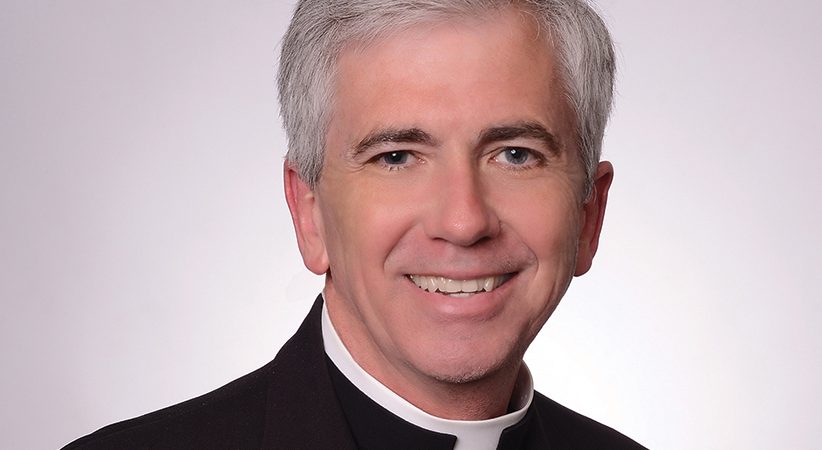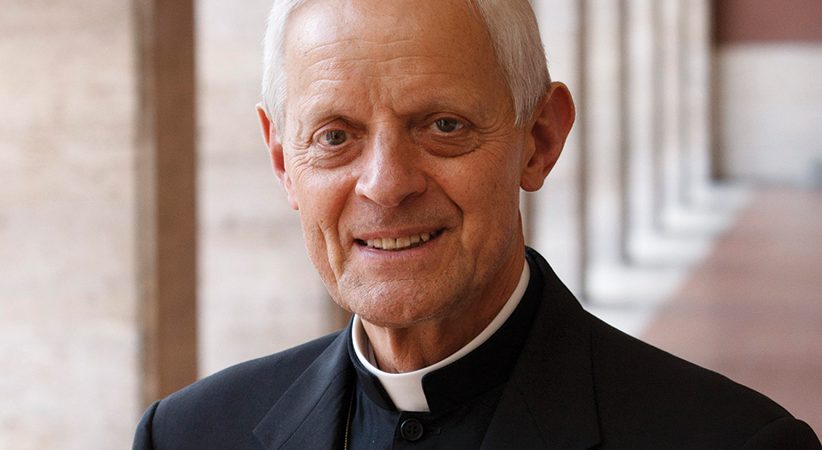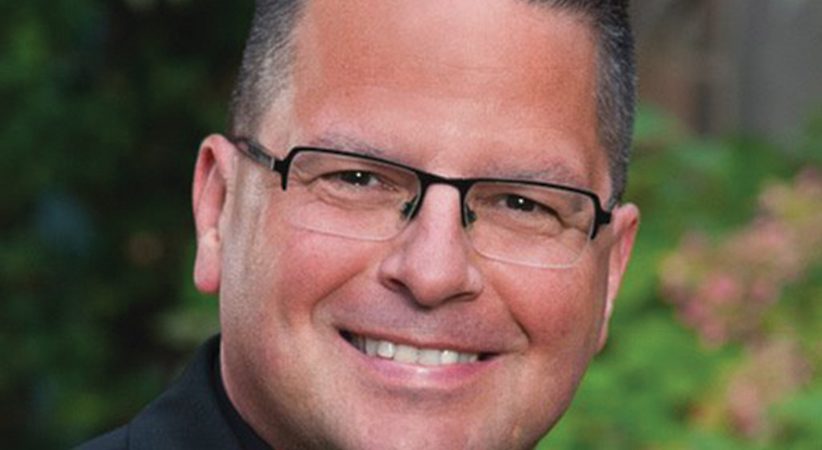Successful Stewardship
Creating a less hostile culture by using the four “P’s” of giving
Father Michael White Comments Off on Successful Stewardship
 One of our very favorite weekends of the year is Stewardship Weekend. That’s right, one of our staff and our parishioners’ favorite weekends of the year is the weekend when we ask for money.
One of our very favorite weekends of the year is Stewardship Weekend. That’s right, one of our staff and our parishioners’ favorite weekends of the year is the weekend when we ask for money.
But it wasn’t always this way. For a long time, I was loathe to talk about money from the pulpit, and parishioners clearly didn’t like hearing about it. In the culture of our parish, there was an unhealthy interest in how “you” (the parish staff) were spending “our” (the parishioners’) money. This adversarial culture manifested itself in a preternatural alertness to evidence of any expenses whatsoever. Any suggestion that we needed more money was evidence that we were spending beyond our means.
The root of much of that hostile culture was tied to the ways that were used to ask for money. Nagging and guilt-driven appeals from the pulpit, refusing to accommodate new technology and downright uninspiring messages have all contributed to a Catholic culture that lags far behind Protestant communities in parishioner giving.
Here are a few things about stewardship weekends that we’ve learned along the way:
1. Exercise discipline throughout the year.
Stewardship Weekend is the only weekend of the year that we ask our parishioners to evaluate their giving to the parish and commit to a plan for the year ahead.
Hosting a successful Stewardship Sunday is tied to the discipline you exercise all year. Asking for money too often can cause your parishioners to tune out or turn off your message altogether. We host no fundraisers, have no second or special collections and never sell anything in our lobby.
Of course, we talk about money whenever it comes up in the Lectionary, which is often, but we only talk about giving to the parish once per year. This discipline ensures that our congregation is open to the message when we preach it.
2. Prepare your congregation ahead of time.
When people don’t know an “ask” is coming, they may feel cornered. This discomfort, in turn, leads them to inaction or reluctant commitment.
On a practical level, potential givers need time to consider their gifts. We preach the four “p’s” of giving — that is, it should be planned, a priority in their budget, measured as a percentage of their income and progressive over time. Planning is a key part of giving.
So that no one is surprised or blindsided, we give plenty of advance notice that Stewardship Sunday is coming. We actually distribute commitment cards in the weeks leading up to the weekend to encourage people to take them home and pray about their gift. It’s also beneficial to let your parishioners know that it’s not the best weekend to invite guests.
3. Only ask for money.
When we first started celebrating Stewardship Weekend, we would also invite people to think about gifts of “time and talent.” In other words, volunteering in ministry. Our stewardship cards even had a place where you could indicate that you were interested in volunteering. It turned out to be a mistake. Many more people were willing to make a commitment to the broad idea of service than to a specific financial commitment. Typically, their service commitment often went unfilled, too. On the other hand, we’ve found that if we can get people to give, it’s easy to get them to serve. They want to serve where they have a financial investment.
4. Make it fun.
Asking for money (and being asked for money) can be uncomfortable. Pastors dread this weekend and parishioners try to avoid it altogether. To bring down our parishioner’s natural defenses, we try to make Stewardship Weekend a celebration. We always include humor in the homily, because when you get people smiling, they relax. At the end of Mass, we usually include some kind of fun element like a video. Food can also help people relax, so we also like to have some treat or snack to give away after Mass.
Hosting a great Stewardship Weekend is just the first step to creating a healthy culture around money at your parish. If you’re looking for even more best practices that we’ve learned over the years, check out our new book “Churchmoney” (Ave Maria Press, $16.95). It even contains a few examples of homilies from our Stewardship Weekends that you can learn from (or steal from).
FATHER MICHAEL WHITE is pastor of Church of the Nativity in Timonium, Maryland, co-author of “Rebuilt” and the newly released book on church financing, “ChurchMoney” (Ave Maria Press, $16.95).




